
Many young women have Polycystic Ovarian Syndrome (PCOS), which is often linked with irregular periods, depression, low self-esteem, and insomnia. Lifestyle and diet changes, along with regular counseling, can help manage these symptoms.
 March 2022 in “Nepal Journal of Dermatology Venereology & Leprology”
March 2022 in “Nepal Journal of Dermatology Venereology & Leprology” Methotrexate with steroids is slightly more effective than azathioprine with steroids for treating severe alopecia areata.
January 2022 in “Springer eBooks” Combining PRP with lipofilling shows promise for tissue regeneration but needs more clinical trials to confirm benefits.
 December 2020 in “Research Square (Research Square)”
December 2020 in “Research Square (Research Square)” The AndroCoV Clinical Scoring is a quick, affordable, and accurate method for diagnosing COVID-19.
December 2022 in “Scientific Reports” Compound 4 is a promising treatment for hair loss with low toxicity.
December 2021 in “BMJ Open” Androgenetic alopecia in men aged 46 is not significantly linked to depression, anxiety, quality of life, self-esteem, or sexual symptoms.
190 citations,
July 2006 in “Experimental Dermatology” The hedgehog signalling pathway is key in skin development and basal cell carcinoma, offering insights for prevention and treatment.
 136 citations,
April 2013 in “Clinical Cancer Research”
136 citations,
April 2013 in “Clinical Cancer Research” The drug IPI-926 is safe at 160 mg daily and may help treat certain tumors, especially basal cell carcinoma.
 86 citations,
October 2017 in “Clinics in Dermatology”
86 citations,
October 2017 in “Clinics in Dermatology” Older adults have a high rate of skin cancers like basal cell carcinoma and melanoma, mainly due to UV exposure and age.
 78 citations,
August 2002 in “Experimental Dermatology”
78 citations,
August 2002 in “Experimental Dermatology” Researchers developed a quick and easy way to get and grow cells from the base of human hair follicles.
 20 citations,
July 2013 in “International Journal of Dermatology”
20 citations,
July 2013 in “International Journal of Dermatology” Obesity increases the risk of skin infections, inflammatory conditions, and melanoma, but not basal cell carcinoma.
 10 citations,
January 2016 in “Dermatology”
10 citations,
January 2016 in “Dermatology” People with myotonic dystrophy type 1 tend to develop basal cell carcinoma at a younger age but not more frequently than others.
 9 citations,
November 2014 in “Journal of Cutaneous Medicine and Surgery”
9 citations,
November 2014 in “Journal of Cutaneous Medicine and Surgery” Many dermatologists in Saudi Arabia recommend vitamins and minerals for hair loss, often based on personal experience rather than strong evidence.
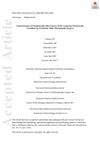 8 citations,
October 2018 in “Journal of the European Academy of Dermatology and Venereology”
8 citations,
October 2018 in “Journal of the European Academy of Dermatology and Venereology” Mohs micrographic surgery is effective for early-stage non-melanoma skin cancers on the lips, with basal cell carcinoma more common on the upper cutaneous lip and squamous cell carcinoma more common on the lower vermilion lip.
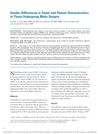 8 citations,
June 2014 in “PubMed”
8 citations,
June 2014 in “PubMed” Men are more likely to have larger basal cell carcinomas and squamous cell carcinomas, while women have more superficial basal cell carcinomas and tumors on their legs and central face.
 5 citations,
January 2016 in “Stem Cells International”
5 citations,
January 2016 in “Stem Cells International” Certain skin cells near the base of hair muscles may help renew and stabilize skin, possibly affecting skin disorder understanding.
 1 citations,
January 2021
1 citations,
January 2021 CD4+ skin cells may be precursors to basal cell carcinoma.
 1 citations,
April 2018 in “The journal of investigative dermatology/Journal of investigative dermatology”
1 citations,
April 2018 in “The journal of investigative dermatology/Journal of investigative dermatology” Topical patidegib gel effectively treats basal cell carcinoma in Gorlin syndrome patients without causing the side effects seen with oral treatments.
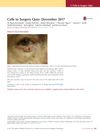 1 citations,
November 2017 in “The journal of investigative dermatology/Journal of investigative dermatology”
1 citations,
November 2017 in “The journal of investigative dermatology/Journal of investigative dermatology” Mohs micrographic surgery is effective for treating basal cell carcinoma on the eyelid, while radiotherapy has higher recurrence rates, and topical vitamin D3 may reduce and delay BCC formation in mice.
 April 2018 in “Journal of Investigative Dermatology”
April 2018 in “Journal of Investigative Dermatology” Basonuclin 1 (BNC1) helps skin cells multiply and move, which is crucial for wound healing.
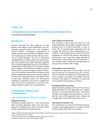
Melanocyte transplantation can safely restore skin color, especially in stable vitiligo, but must be chosen carefully based on the disease phase.
April 2016 in “The journal of investigative dermatology/Journal of investigative dermatology” Activating Sonic Hedgehog signaling in cancer stroma may help treat basal cell carcinoma.
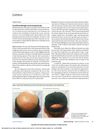 April 2016 in “JAMA Dermatology”
April 2016 in “JAMA Dermatology” Baseball caps don't fully protect bald spots on the back of the head from sun damage; wear wide-brimmed hats or use sunscreen.
December 2012 in “한국피부미용향장학회지” Different aroma oils are suited for dry, oily, or sensitive scalps based on their specific chemical compositions.
April 2011 in “Journal of Medicinal Plants Research” Ocimum basilicum L. and red Oryza sativa L. may help with hair loss and prostate issues.
 June 2010 in “Melanoma research”
June 2010 in “Melanoma research” LDE225 is a promising skin-applied treatment for basal cell carcinoma with good skin penetration and effectiveness.
 1160 citations,
November 2018 in “Physiological Reviews”
1160 citations,
November 2018 in “Physiological Reviews” The document concludes that better targeted treatments are needed for wound healing, and single-cell technologies may improve cell-based therapies.
 216 citations,
November 1999 in “Fertility and Sterility”
216 citations,
November 1999 in “Fertility and Sterility” Testing basal 17-HP levels is a good way to screen for nonclassic adrenal hyperplasia in women with high androgen levels.
194 citations,
October 2018 in “Microbiome” Acne is linked to complex skin microbe interactions, and new findings suggest microbiome-based treatments could be effective.
86 citations,
January 1996 in “Clinics in dermatology” Hair can be damaged by daily routines, but protein-based products can protect and improve it.




















